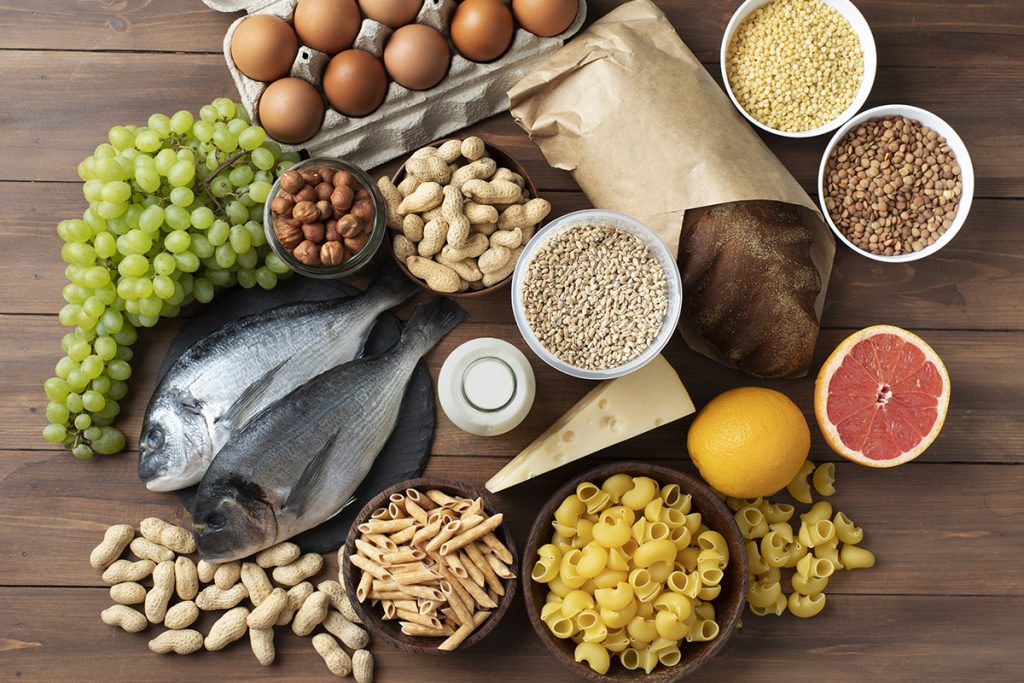4 Foods that are the key to higher energy levels

In a recent poll conducted in the United States, it was revealed that approximately one-fifth of U.S. adults sleep for five hours or less each night. Experts stress the significance of prioritizing sufficient sleep to ensure waking up feeling revitalized and ready for the day ahead.
While adequate sleep is crucial for maintaining higher energy levels, nutritionists also highlight the role of certain foods in providing a natural energy boost when necessary. Here, we explore four types of foods that nutrition experts recommend for enhancing energy levels and promoting overall well-being.
01. Consume complex carbohydrates
Simple carbohydrates, like white bread, rapidly elevate blood sugar levels, leading to sudden crashes in energy. This fluctuation can result in fatigue, irritability, mood swings, headaches, and increased hunger and cravings.
In contrast, complex carbohydrates are digested more slowly, providing a steady release of glucose into the bloodstream. Consuming complex carbs for breakfast is recommended to sustain energy levels throughout the day.
Complex carbohydrates include wheat bread, sweet potatoes, oatmeal, pumpkin seeds, apples, and chickpeas.

02. Opt for fiber-rich foods
Incorporating fiber-rich foods into your diet is essential for overall health. However, a recent study presented at Nutrition 2021 Live Online revealed that less than 10% of U.S. adults meet the recommended daily intake of fiber.
According to the U.S. Department of Agriculture, adults aged 50 and under should aim for 25 grams of fiber daily for women and 38 grams for men. For those over 50, the recommended intake decreases slightly to 21 grams for women and 30 grams for men, as advised by Harvard Health Publishing.
Despite these guidelines, many Americans typically consume only 10 to 15 grams of fiber daily, reports Harvard Health Publishing.
Consuming fiber-rich foods early in the day can surely boost energy levels. Here are some fiber-rich options recommended by many nutritionists: Berries, quinoa, prunes, and leafy greens, particularly spinach.
To incorporate these foods into your meals, consider adding a mix of berries and prunes to a smoothie or enjoying a leafy green salad with quinoa.

03. Choose heart-healthy fats
Nutritionists often highlight heart-healthy fats as an effective energy-boosting food group.
High in Omega-3 fatty acids, foods like fatty fish such as salmon and sardines not only promote brain health but also enhance mood and alleviate symptoms of depression. Depression can significantly impact energy levels and productivity.
Furthermore, unsaturated fats play a role in reducing inflammation and blood pressure, both vital for maintaining brain health. Therefore, kindly consider incorporating the heart-healthy fats of avocados, tofu, olives, sardines, dark chocolate and salmon into your diet.
04. Get enough hydration
While seemingly straightforward, hydration is often overlooked as a means to boost energy. According to the Centers for Disease Control and Prevention, dehydration can negatively impact mood and lead to feelings of sluggishness.
Conversely, adequate water intake throughout the day helps ‘maintain energy levels by keeping our muscles energized.
Determining the exact amount of water to drink daily remains a topic of debate, especially considering factors such as physical activity levels. Nonetheless, reaching for a glass of water when feeling fatigued can provide a refreshing energy boost.

4 Foods that are the key to higher energy levels conclusion
A well-rounded, nutritious diet provides essential nutrients that act as fuel for your body, supplying energy to power various bodily functions. These nutrients support vital processes such as heart function, brain activity, and muscle performance.
Choosing the right foods is crucial, as the nutrients they offer not only fuel activities and growth but also sustain essential bodily functions like breathing and digestion. Additionally, they contribute to maintaining body temperature, supporting growth and repair, and bolstering immune health.




















